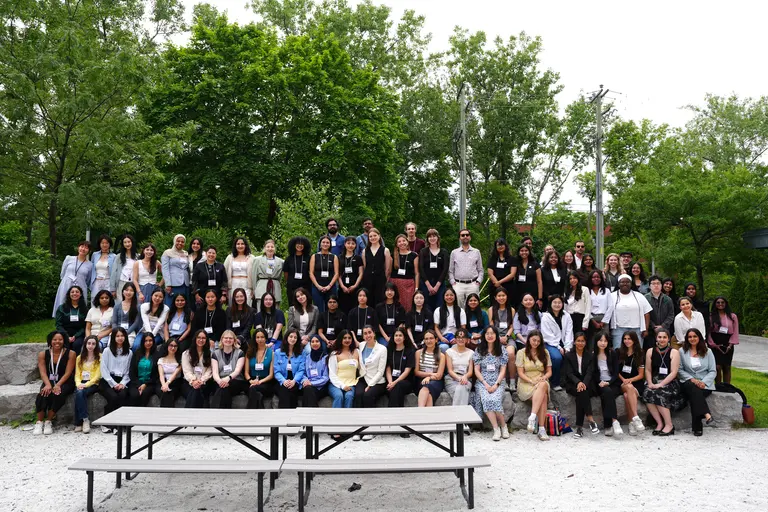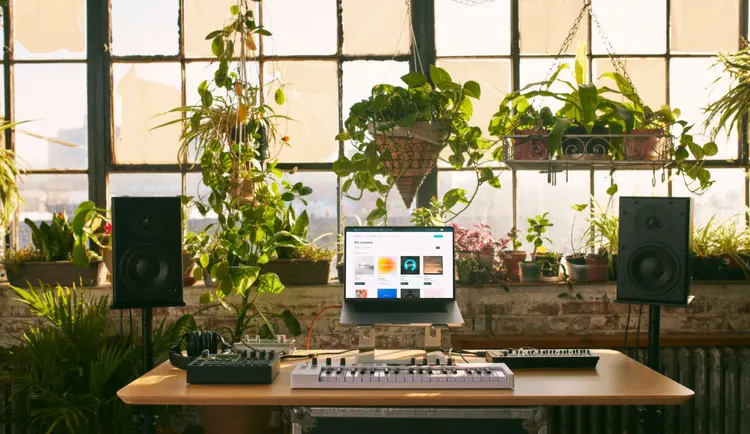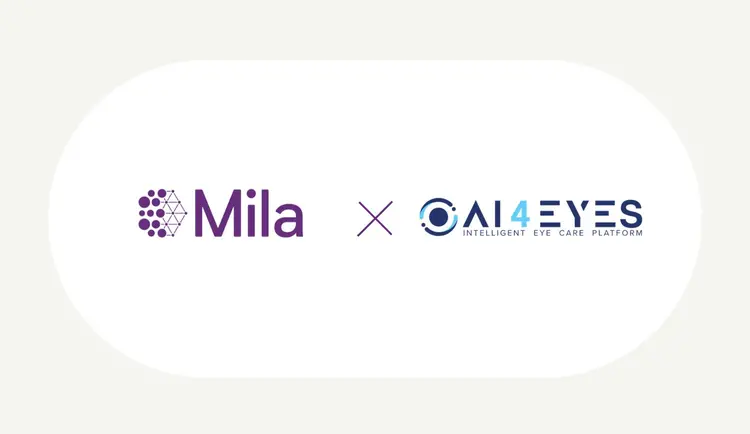
On June 26th, 2025, Mila hosted the annual Demo Day for the AI4GoodLab program, where 74 trainees presented the 14 machine learning projects they developed over the course of the program. The projects offered solutions to a range of pressing issues such as housing, urban accessibility, menopausal health, inclusive physical therapy, neglected tropical diseases, climate change and many more.
Representing 7 weeks of dedicated work by women and gender diverse participants from all across Canada, these projects applied the knowledge gained during the program and showcased how AI can be used for social good. Over the course of the program, trainees attended machine learning lectures, talks and workshops to help them to identify social issues, showcase real-life applications of AI for social good, and ultimately work in teams to put their knowledge into practice.
This year, the Lab focused on providing region-specific programming and training, with expertise tailored to local and regional issues and problem-solving approaches. The 2025 edition of the AI4Good Lab brought together 15 teaching assistants, 4 lecturers, 70 guest speakers, including several AI4Good Lab alumni, and 16 mentors, all of who supported this year’s cohort of future leaders in kick-starting their projects using AI for social good. This year’s Lab was also supported by two returning sponsors, title sponsor Manulife and key sponsor Google DeepMind.
“When we take a step back and look at our cohorts and their projects, we can clearly see how impactful it is to include people from communities that are often excluded from shaping AI. Our trainees are encouraged to embrace and use their lived experience — across race, sexuality, religion, ability, neurodiversity, etc. — as expertise, leading to richer ideas and more relevant, inclusive problem-solving,” said Jennifer Addison, Project Manager, AI4Good Lab, Public Policy and Inclusion at Mila.
“We’ve also noticed that this year, as more people learn about machine learning and coding on their own, the academic backgrounds of our trainees are diversifying. We welcomed people with non-STEM degrees such as public policy, economics, information studies, education, and commerce. To me, that highlights the wide variety of real, interdisciplinary issues that could be addressed when AI is introduced to people who want to make real change.”
Here are the teams whose projects were selected for a 2025 Accelerator Award:
Edmonton Team: H.O.U.S.E.D
H.O.U.S.E.D project aims to predict fluctuations in the homelessness population using socio-economic data. By analyzing key indicators such as employment rates, rental costs, income levels, and more, we seek to provide policymakers and government agencies with proactive, data-informed insights to enable timely and effective interventions.
Montreal Team: MYBO
MYBO: A dedicated AI companion for functional neurological disorder (FND) patients, designed to prevent stressful flare-ups, to inform and to help them regain agency.
Toronto Team: Re:Housed
Re:Housed transforms how Toronto's policymakers and city planners identify optimal shelter locations, providing recommendations that uniquely prioritize the needs of unsheltered individuals to ensure effective housing transitions, now and in the future.
Virtual Team: WellNest
WellNest provides holistic support throughout the perinatal journey, predicting prenatal risks, supporting postpartum mental health, and empowering new mothers through personalized guidance, community connection, and a virtual assistant.





